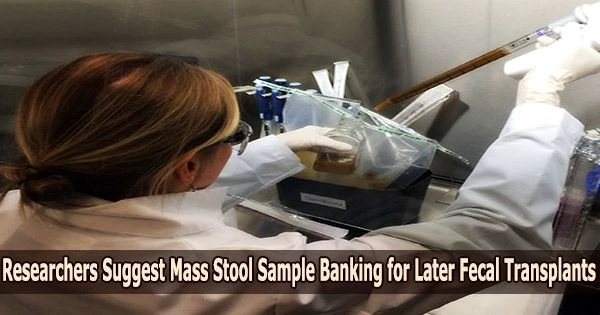Particularly in the last few decades, changes in how humans live and eat have significantly altered the gut microbiota. Type 2 diabetes, digestive system disorders, allergies, asthma, and other ailments have all been connected to these changes.
In an opinion piece that was published on June 30 in the journal Trends in Molecular Medicine, a group from Harvard Medical School and Brigham and Women’s Hospital (BWH) makes the suggestion that we can reverse these trends by encouraging people to save samples of their own gut microbiota while they are still young and healthy in case they ever need them for an autologous fecal microbiota transplant (FMT).
“The idea of ‘rewilding’ the human microbiome has taken off in recent years and has been hotly debated from medical, ethical, and evolutionary perspectives,” says corresponding author Yang-Yu Liu, an Associate Professor of Medicine at Harvard and an Associate Scientist in the Channing Division of Network Medicine at BWH.
“It is still unknown if people in industrialized societies can gain some health benefit by restoring their microbiome to an ancestral state. In this paper, we proposed a way to rejuvenate the human gut microbiome.”
FMTs using donor stool have shown benefit for treating some conditions, primarily infections with Clostridioides difficile (C. diff), which affect about half a million people and kill about 29,000 in the United States every year.
The host’s response can vary, which is a drawback of employing donor stool. This is probably because the donor and the host have different genetic make-ups and environments. To help in the development of microbiome-based treatments, Yang’s lab focuses on comprehending the ecological dynamics and organizational principles of the human microbiome.
Autologous FMTs have the potential to treat autoimmune diseases like asthma, multiple sclerosis, inflammatory bowel disease, diabetes, obesity, and even heart disease and aging. We hope this paper will prompt some long-term trials of autologous FMTs to prevent disease.
Professor Scott T. Weiss
OpenBiome, a nonprofit stool bank based in Somerville, Massachusetts, is the first stool bank to offer an option for individuals to bank their own stool for future treatment of C. diff infection. Yang and his colleagues looked at whether this approach might be feasible on a large scale for many other diseases.
“Conceptually, the idea of stool banking for autologous FMT is similar to when parents bank their baby’s cord blood for possible future use,” says Yang. “However, there is greater potential for stool banking, and we anticipate that the chance of using stool samples is much higher than for cord blood.”
“But there are many practical issues to implementing this idea,” says Yang.
The article takes a closer look at some of those issues, including optimal storage methods, how much stool should be banked, and what the costs might be.
“Autologous transplants would naturally avoid or at least mitigate donor-recipient compatibility issues, but a major disadvantage of autologous transplants is the need for long-term cryopreservation of stool samples, typically requiring liquid nitrogen storage,” says co-author Shanlin Ke, a postdoctoral research fellow in Yang’s lab.
“The long-term safe storage and subsequent resuscitation and cultivation of stool samples is a fundamental research question by itself. To inform practical guidelines for stool banking, further research is needed to systematically test longer storage times and preservation, resuscitation, and cultivation procedures.”
Yang admits that extensive banking may result in a situation where individuals with greater financial means are more likely to have stored excrement for later use.
“We do not anticipate that all individuals in our society are willing or able to pay the cost associated with the service of ‘rejuvenating’ their gut microbiome, in the same way, that not all parents pay the cost of cord blood banking for their newborns,” he says.
“But as scientists, our job is to provide a scientific solution that may eventually benefit human well-being. Developing a reasonable business model and pricing strategy so that the solution is affordable to everyone would require the joint force of entrepreneurs, scientists, and perhaps governments.”
“Autologous FMTs have the potential to treat autoimmune diseases like asthma, multiple sclerosis, inflammatory bowel disease, diabetes, obesity, and even heart disease and aging,” says co-author Scott T. Weiss, a Professor of Medicine at Harvard and Associate Director of the Channing Division of Network Medicine at BWH. “We hope this paper will prompt some long-term trials of autologous FMTs to prevent disease.”





